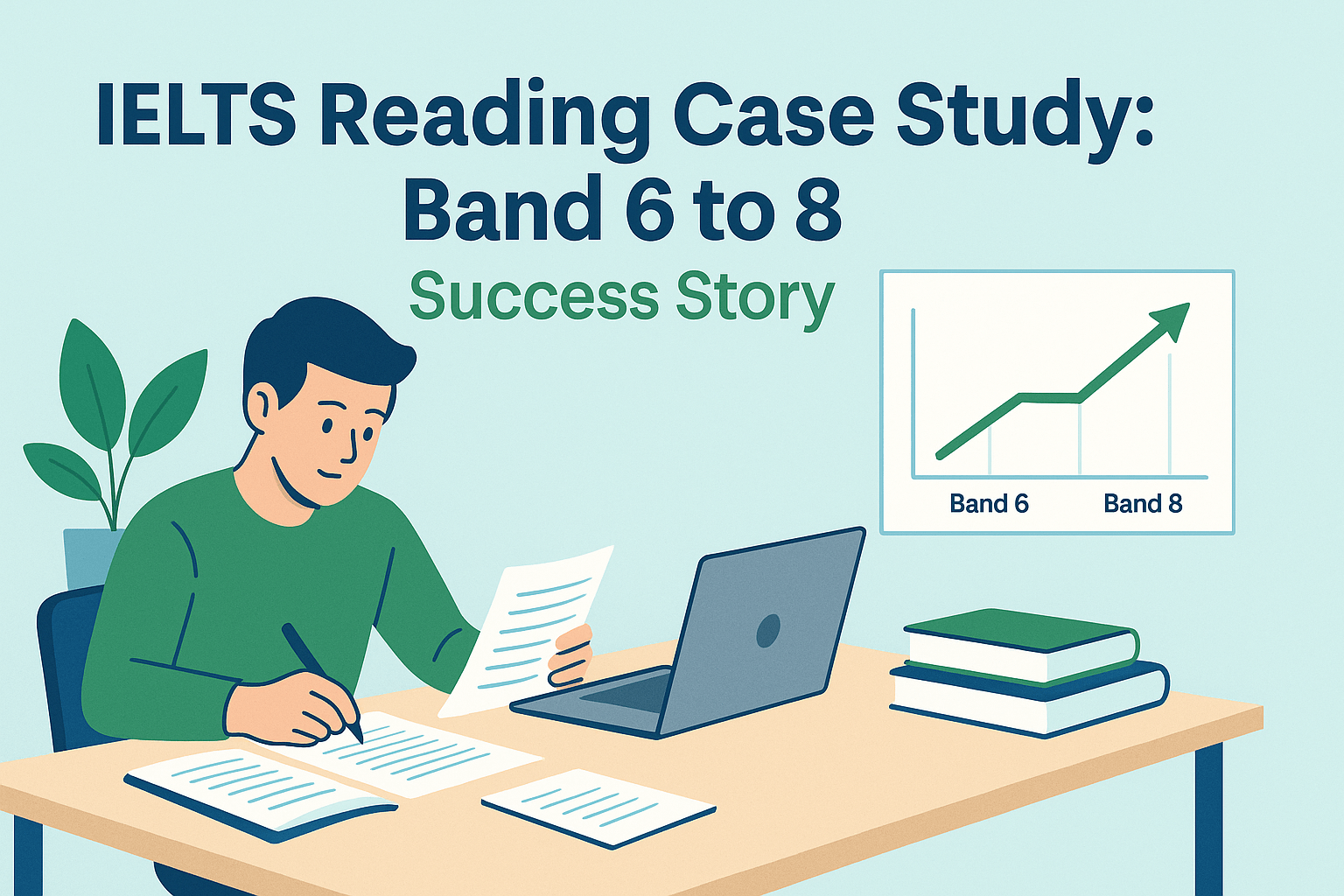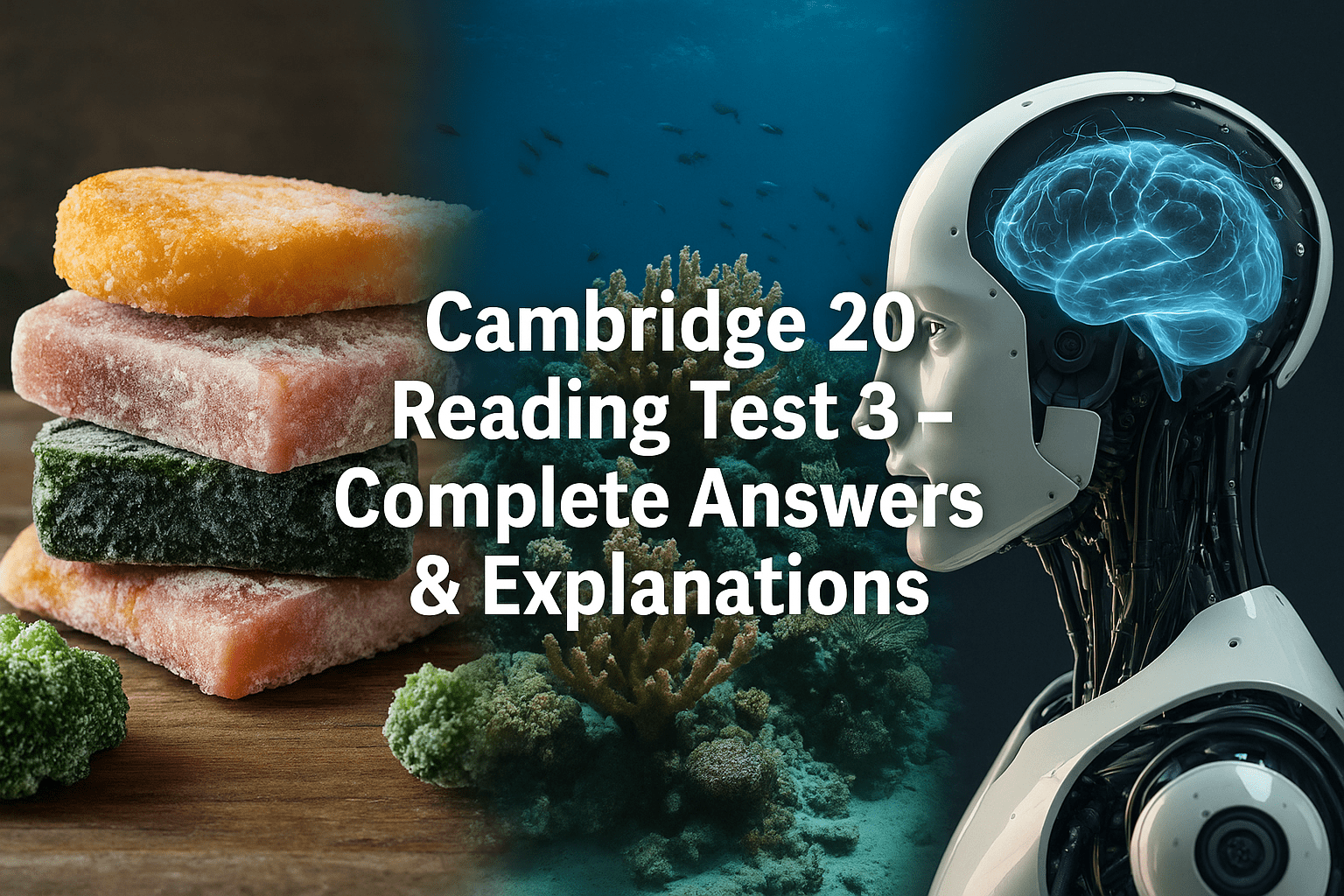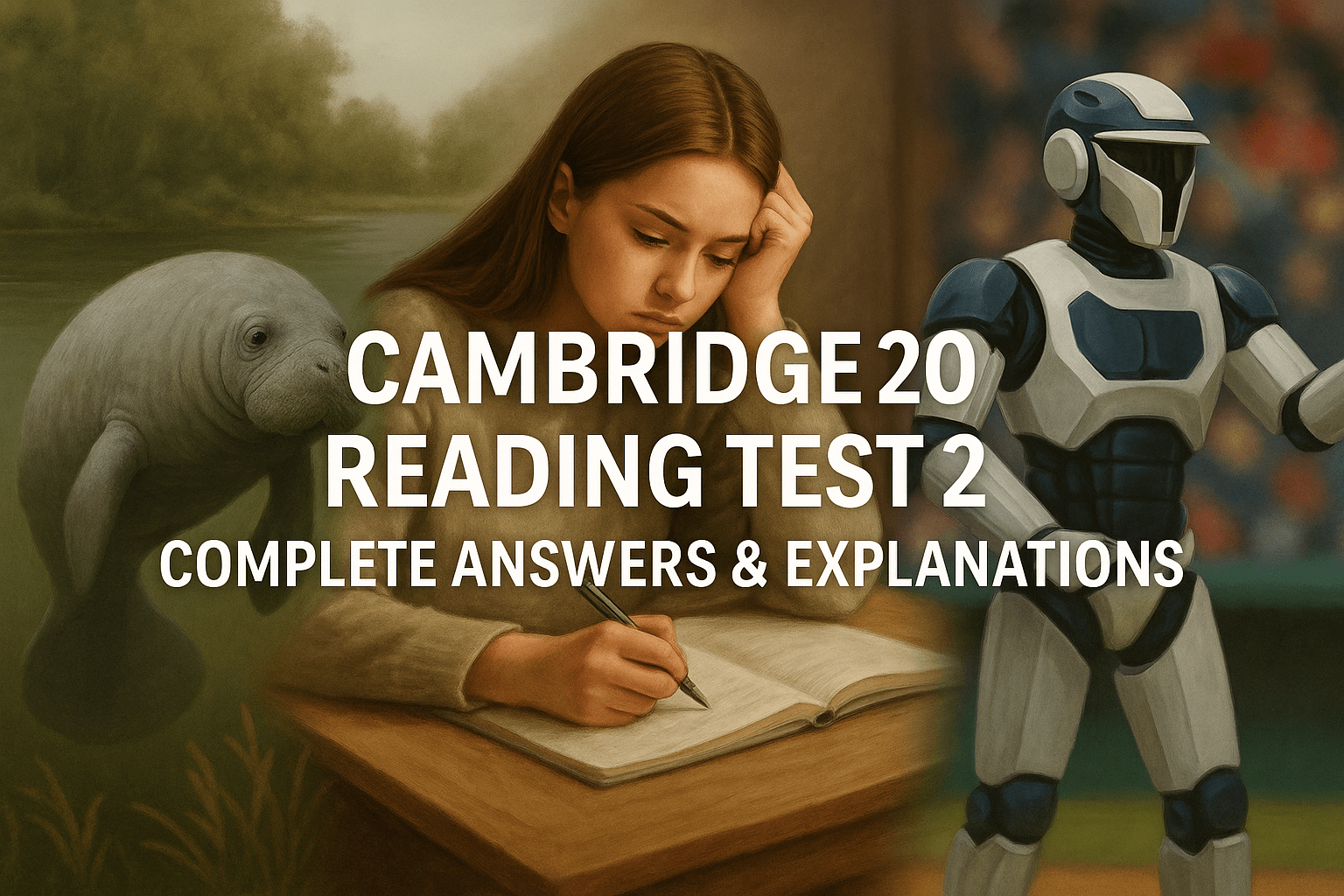IELTS reading case study band 6 to 8 is more than just an inspiring success story—it’s a practical example of how targeted strategies can transform exam performance. In this blog, you’ll see how one student moved from a Band 6 to a Band 8 in the Reading section, along with the exact improvement methods that made this jump possible. If you’ve ever felt stuck at a plateau, this case study will show you that consistent practice and smart techniques can make a real difference.
Background
The IELTS Reading test is often considered one of the toughest parts of the exam. With three long passages, 40 challenging questions, and just 60 minutes to finish, many learners struggle with time management, vocabulary, and question traps. Moving from Band 6 to Band 8 requires more than just reading practice—it demands strategy, focus, and awareness of common pitfalls.
Globally, IELTS is recognized as proof of English proficiency for university admissions, work visas, and immigration. According to IELTS.org, over 3.5 million candidates take the exam every year, making it one of the most widely trusted English language tests. This means even a two-band improvement, such as going from 6 to 8, can unlock access to top universities, better job opportunities, and permanent residency pathways.
At IELTS Zone, we regularly share expert guides, such as our IELTS Reading Guide with Tips, Strategies & Practice, to help learners develop speed, accuracy, and confidence. This case study builds on those principles, showing how they work in real life when applied consistently.
IELTS reading case study band 6 to 8 shows how small changes in study habits can lead to big results. Imagine you are given 60 minutes to answer 40 complex questions across three dense passages—would you know exactly how to manage your time?
👉 Quick self-check:
- Do you often run out of time before answering all 40 questions?
- Do you get confused by “True/False/Not Given”?
- Do you rely on reading every word instead of skimming?
Definition: An IELTS reading case study band 6 to 8 is a real-life example of how test-takers overcame common obstacles to improve their band scores significantly.
The Real-Life Problem
Let’s consider Aya, a motivated student who sat for IELTS Reading three times but stayed stuck at Band 6. She spent hours reading English articles but still struggled in the test room. Each failed attempt cost her both time and test fees, not to mention a knock to her confidence.
Here were Aya’s biggest mistakes:
- Reading the entire passage instead of focusing on keywords.
- Losing track of time and leaving 5–7 questions unanswered.
- Misinterpreting “Not Given” questions by assuming extra information.
- Ignoring spelling mistakes that cost her valuable points.
- Failing to develop a system for skimming and scanning.
Research from the British Council shows that time management errors and lack of strategy are among the top reasons why candidates remain below Band 7 in Reading (source). This aligns with our experience at IELTS Zone, where students often underestimate how strategic IELTS Reading needs to be.
Step-by-Step Solution
1. Diagnose Your Weaknesses
What/Why: Before improving, identify whether your problem is timing, question types, or vocabulary.
How: Take a timed practice test and mark which questions you got wrong.
Example: Aya realized she lost the most points on Matching Headings and True/False/Not Given.
Micro Q&A: Q: Should I practice everything equally?
A: No, focus first on your weakest question types for faster gains.
CTA: Start by reviewing your mistakes in a practice reading test.
2. Master Skimming and Scanning
What/Why: Reading every word wastes time; IELTS is about locating information quickly.
How: Spend 2–3 minutes skimming for the main idea, then scan for keywords in the questions.
Example: Aya underlined dates, numbers, and names, which helped her locate answers faster.
Micro Q&A: Q: Do I need to understand every word?
A: No. Focus on context and keywords, not perfect comprehension.
CTA: Practice these skills using authentic IELTS passages daily.
3. Tackle Tricky Question Types
What/Why: Many students drop points on True/False/Not Given and Matching Headings.
How: Break them down—TFNG requires you to decide if the text agrees, contradicts, or ignores the statement.
Example: Aya stopped assuming extra information, which helped her get 80% accuracy on TFNG.
Micro Q&A: Q: How do I handle “Not Given”?
A: If the passage doesn’t directly confirm or contradict, it’s Not Given.
CTA: Review detailed strategies in our IELTS Reading Guide.
4. Improve Vocabulary and Paraphrasing Skills
What/Why: IELTS often uses synonyms instead of exact words from the passage.
How: Create a vocabulary log and note common IELTS paraphrases.
Example: “Increase” may appear as “rise” or “growth” in questions. Aya built flashcards to recognize these patterns.
Micro Q&A: Q: How many new words should I learn daily?
A: Even 5–10 new academic words per day is effective if reviewed regularly.
CTA: Use online glossaries and note synonyms during practice.
5. Practice Under Real Exam Conditions
What/Why: Untimed practice doesn’t prepare you for the 60-minute pressure.
How: Simulate exam conditions—3 passages, 40 questions, 60 minutes.
Example: Aya improved from completing only 30 questions in time to finishing all 40 with 5 minutes spare.
Micro Q&A: Q: Should I guess unanswered questions?
A: Yes, there is no penalty for wrong answers.
CTA: Take full mock tests weekly to measure real progress.
6. Review and Self-Correct
What/Why: Feedback is where learning sticks.
How: After each test, mark errors and ask, “Why did I miss this?”
Example: Aya noticed she often skipped over small words like “only” or “some,” which changed meaning.
Micro Q&A: Q: How do I track progress?
A: Keep a log of scores per passage and question type.
CTA: Review mistakes after every practice session instead of moving on blindly.
Quick Wins & Checklist
✅ Today
- Take a 40-question IELTS Reading practice under time pressure.
- Identify your weakest question type.
✅ This Week
- Practice skimming/scanning daily with one passage.
- Review strategies for True/False/Not Given and Matching Headings.
✅ This Month
- Complete 4 full mock reading tests.
- Track scores to ensure at least 30–34 correct answers consistently.
- Revisit our IELTS Reading Guide for deeper strategies.
Here’s your Stage 4 — Case Study, Tools, FAQs, Wrap-Up draft:
Case Study: From Band 6 to Band 8 in Reading
Aya’s journey illustrates the power of strategy over raw effort. When she first attempted IELTS, she scored Band 6 in Reading after months of reading English newspapers without targeted practice.
Action Taken:
- She switched to timed IELTS reading tests.
- Focused on True/False/Not Given and Matching Headings.
- Logged mistakes and reviewed paraphrasing patterns.
- Completed four full practice tests per month.
Result: Within 12 weeks, Aya’s score rose from 23/40 to 35/40, equivalent to Band 8 in Reading. This dramatic improvement not only saved her from paying for multiple retakes but also helped secure a scholarship at her chosen university. IELTS remains one of the most recognized qualifications worldwide, as outlined on IDP IELTS.
Tools & Templates for IELTS Reading Success
Here are some resources to help you achieve similar progress:
- Cambridge IELTS Books (1–18) – Real past papers for authentic practice. Best for simulating exam conditions.
- IELTS Zone Practice Tests – Free IELTS Reading practice tests with answer keys to track progress.
- Vocabulary Flashcard Apps (Quizlet/Anki) – Ideal for building synonym recognition and paraphrasing skills.
- Time-Tracking Apps (Pomodoro Timer) – Helps build discipline and trains you to answer within the 60-minute limit.
- British Council Online Resources – Expert tips and interactive tools to strengthen reading skills.
Troubleshooting & FAQs
What is an IELTS reading case study band 6 to 8?
It’s a real-life example of how a student improved their IELTS Reading band score through targeted strategies and consistent practice.
How long does it take to improve from Band 6 to Band 8?
On average, 8–12 weeks of focused practice with proper guidance can bring this improvement, depending on your starting level.
Is it enough to just read English books and newspapers?
No. General reading builds language exposure, but IELTS requires exam-specific techniques like skimming, scanning, and handling question traps.
What’s the hardest question type in IELTS Reading?
Most students struggle with True/False/Not Given and Matching Headings. Both demand close attention to wording and meaning.
Can I skip passages if I run out of time?
You should attempt all questions. If you’re short on time, scan for obvious keywords and guess remaining answers since there’s no penalty for wrong responses.
How many correct answers do I need for Band 8?
Typically, 35–36 correct out of 40 gives Band 8, though this may vary slightly depending on test difficulty.
Should I focus on vocabulary or strategies first?
Strategies should come first, as they maximize your score quickly. Vocabulary should be developed alongside for long-term gains.
Summary
Improving from Band 6 to Band 8 in IELTS Reading is absolutely possible with structured strategies. Aya’s case shows that consistency, smart tools, and exam-specific practice make all the difference.
Key Highlights:
- Diagnose weaknesses, then target them with proven strategies.
- Use timed practice to replicate real exam conditions.
- Track progress regularly and review mistakes critically.
👉 Ready to start your own journey? Take our free IELTS Reading practice test and explore our complete IELTS Reading Guide.
Author Card & Trust Signals
About the Author:
I’m Hiroshi Tanaka, an IELTS blog writer with over 9 years of experience helping learners strengthen their reading skills and succeed in the IELTS exam. With a background in English education and advanced training in test preparation, I specialise in simplifying the IELTS Reading section and guiding students to Band 7+.
Last updated: August 2025
References:
Internal Links
- Upward (Pillar Blog): IELTS Reading Guide: Tips, Strategies & Practice
- Sideways (Related Blogs): IELTS Reading Common Errors & Band Descriptors
- Downward (Child Blogs): IELTS Reading Practice Tests





